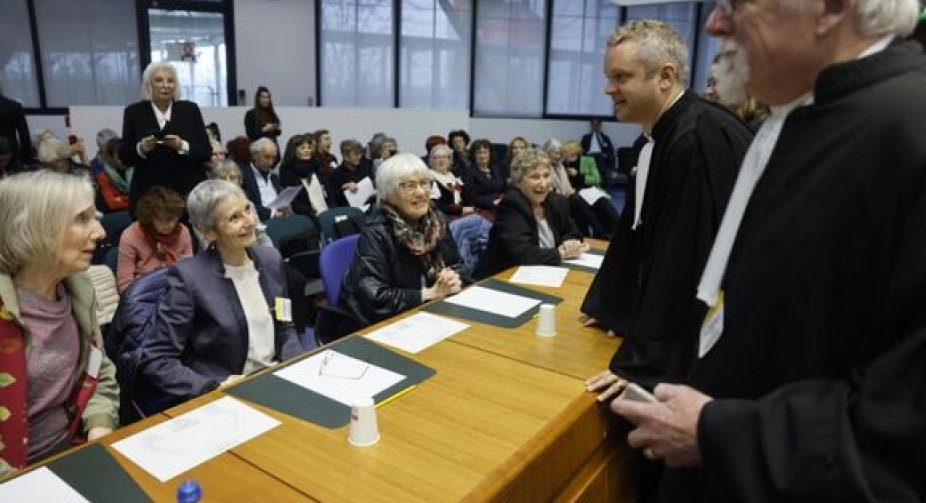For the first time in history, the European Court of Human Rights will hear cases against France and Switzerland regarding alleged violations of environmental protection requirements. If the governments lose, it will become a world precedent, writes AFP.
The case against Switzerland is based on a complaint by an association of elderly people, calling themselves the "Club of the Elderly", concerned about the consequences of global warming for their living conditions and health. They accuse the Swiss authorities of various shortcomings related to climate change, which they say constitute a violation of the government's obligations to protect the lives, homes and families of citizens.
"This is a historic event," said Hanna Maher, 64, a member of the Swiss Club, which supports Greenpeace in Switzerland, where the average life expectancy is 73.
About 50 of the organization's 2,000 members will travel to Strasbourg for the hearing, Marer told AFP. All the reports on global warming over the past 20 years show that "everyone is affected," but older people more than others, especially older women, because of cardiovascular and respiratory risks, she said. According to her, all attempts to force the Swiss authorities to act on their behalf have failed.
The lawsuit against France was brought by Damien Careme, the former mayor of Grand Cinthe, a suburb of Dunkirk in northern France, who also claims the central government failed in its duty to protect life by taking insufficient action to prevent climate change. When he was mayor, Karem took his case to a French court on behalf of his city as well as himself, saying climate change increased the risk of his house flooding. France's highest administrative court ruled in favor of the city against the central government in 2021, but dismissed an individual case brought by Caremi, which it then referred to the ECtHR.
"The stakes are extremely high. If the European Court of Justice recognizes that climate defects violate people's rights to life and a normal family life, it will set a precedent in all member states of the Council and possibly in the whole world," said Corinne Lepage, former French Minister of Environment and one of the lawyers Karemi is on the case.
The European Court of Human Rights, made up of 46 Council of Europe states, admitted in a statement before the hearing that the European Convention on Human Rights, on which it must base its decisions, does not actually contain a right to a healthy environment. But his decision to adjourn the cases to Wednesday was based on the fact that the realization of rights under the Convention could be undermined by damage to the environment or the impact of environmental risks.
A third pending case, without a hearing date, was brought by young Portuguese applicants who claimed climate inaction by dozens of states contributed to Portugal's scorching heatwaves, which they say are affecting their rights.
Wednesday's hearing is just the beginning of a process that is likely to last several months before the court issues a verdict.
Although these cases are a first for the ECtHR, governments have been sued in their national jurisdictions in the past.
In 2019, the Dutch Supreme Court ordered the government to reduce greenhouse gas emissions following a complaint by an environmental organization. Two years later, a court in Paris found the French government guilty of climate change inaction and ordered it to pay damages.
